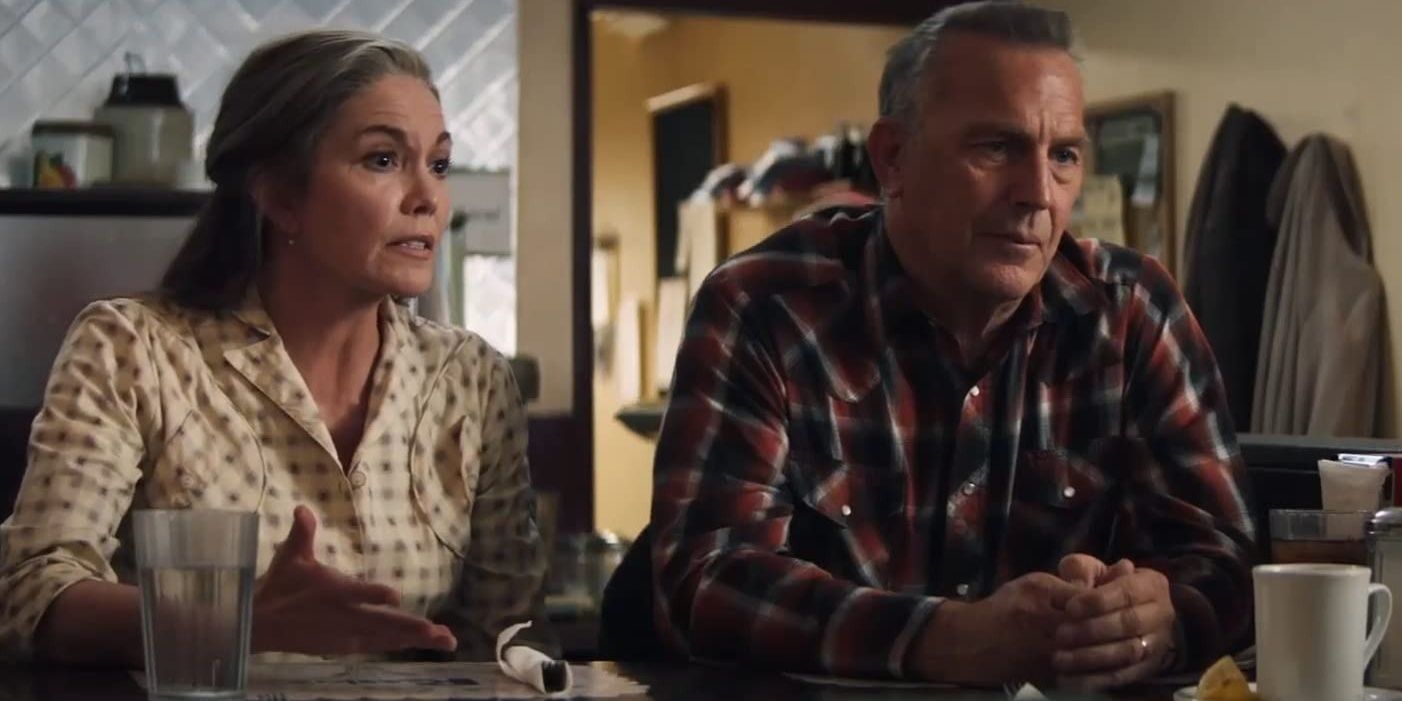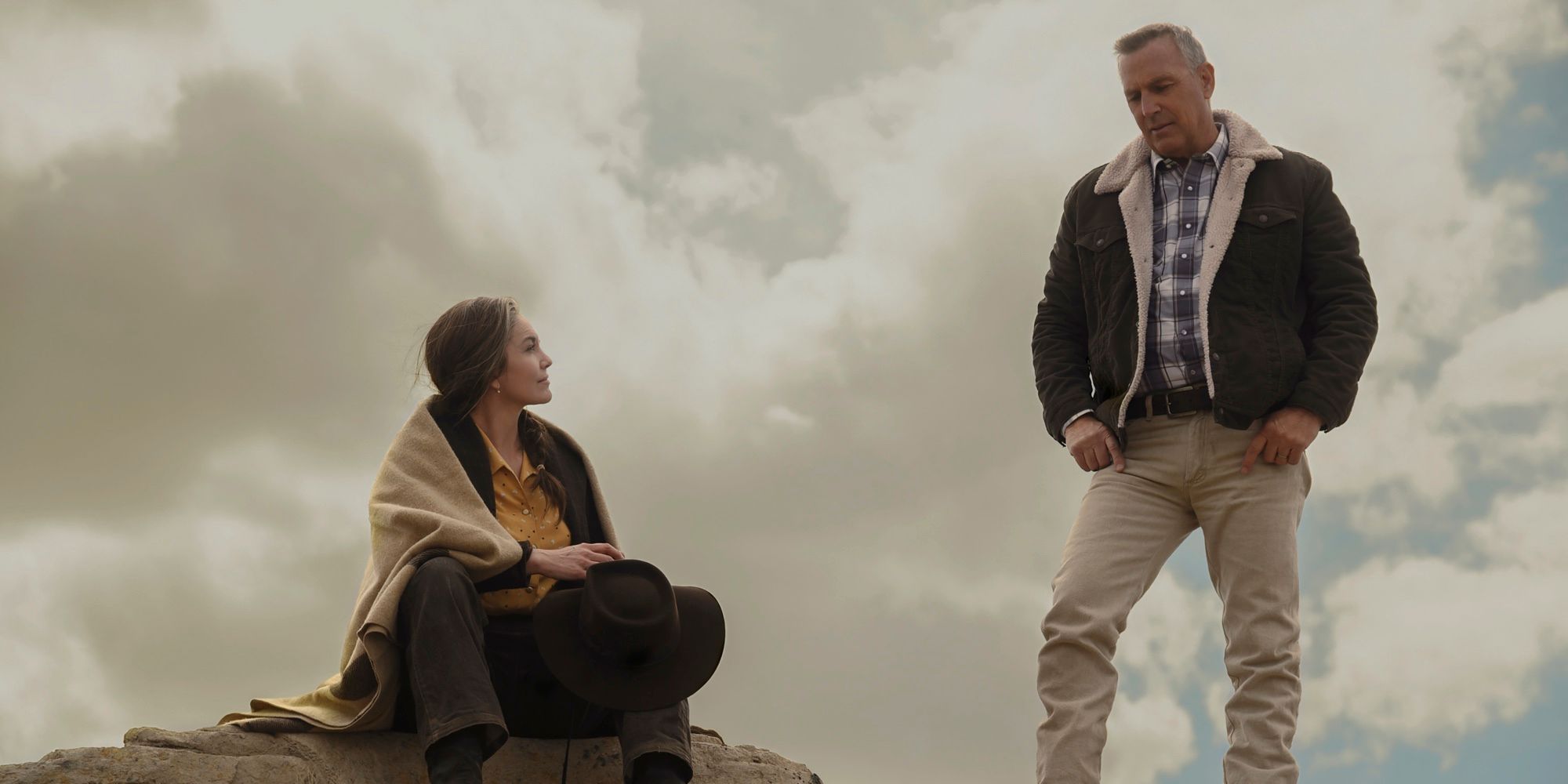Let Him Go was released for home entertainment this week via digital, with Universal Pictures bringing the film to Blu-ray on February 2. The action drama explores a couple’s grief over the loss of their son and steely fortitude in the face of saving their only grandchild.
Diane Lane plays Margaret Blackledge, who musters up all her courage – along with her husband George’s (Kevin Costner) – to salvage what’s left of her family. The acclaimed actress spoke with Screen Rant about what compelled her to take part in the film as well the journey the characters go through in it.
Margaret and George feel timeless in many ways, and it’s easy to imagine this taking place in the 1800s. Can you talk to me a little bit about the characterization of the couple?
Diane Lane: They've been through America changing quite a bit in the course of their marriage. We're meeting them at that beautiful moment when you become a grandparent for the first time, in this long term relationship. They're going into retirement and yet they still have a family business with their son - which is training horses, horse rehabilitation, and that sort of thing. George has retired after 30 years of working in law enforcement; he finally became Sheriff and he's done with all that now.
Just when you think it's safe to relax right into your sunset years, right? Especially for that generation, when people did actually retire. It was just a different world; a different America. Everything was built to last because there wasn't this mentality of immediate replacements. Certainly not out of the cities and with a different demographic, out in Montana and way out in the hinterlands. They're about a decade behind.
I think it's important that we fall in love with the characters right away, that we understand the footing that they lose right away, and we're on this journey with them right away. Welcome to the rest of your life, which is going to be healing from grief on an epic scale. Whatever your identity was previously, now you are marked as a person who has experienced this traumatic loss. You look at your partner and, whoever you were to each other, it's now framed with this loss. Most people don't survive it, and you put quotations around the word survive, because it's a relative thing. It's that type of heartbreak that people don't even want to come back from - no judgment there, certainly.
This is what's going on for them, and then they're on a road trip to try to get their grandson back. And what does that mean to them? I found that very compelling, as far as the cliche of actors going, "What's my motivation?" I knew all that.
This is an intense thriller, but it also speaks to larger things. What do you think people will relate to in the story and the characters?
Diane Lane: Well, question sort of answers itself. Certainly, what hill are you willing to - I guess they call it "die on." But it's more like, when does your identity really become almost a spiritual existence. Meaning, where are you compelled in almost a mystical way to fight for what you believe in. It's a tricky time, because when you make a movie you don't know what the frame of the zeitgeist is going to be when the film gets released. People talk about movies in terms of when they were released. I talk about movies in terms of when they were made, which is on average a year before.
I feel like when we made this movie, we knew that the themes in the story were certainly timeless. This story touches territory that's kind of raw right now, but it does it in a way that is apolitical, that is reminiscent of unifying themes, but is on the same territory that traditionally is about division. It walks that tightrope of what's really important. What are you willing to endanger yourself for without it being hyperbolic or superheroic? The themes stay very relatable and intimate, rather than just a larger than life thing that we've become sort of inured to.
Your relationship with Kevin Costner feels so natural. How did your past acting experience together help form the onscreen relationship we see in Let Him Go?
Diane Lane: Tremendously. We had a lot of wind in our sails left over from the time that we'd worked together previously. I was scanning the horizon and smoke signals to try to find a script for us to do together. Which is interesting, because that's what Kevin said he would do. That was his line when we went our separate ways after wrapping Man of Steel. He said, "I'm going to find something for us to work on together." Well, it turned out that it came my way first, so I got to bring it to him.
But this script is so good, and it's always in the writing. That's the thing that you cannot replace about what we do for a living. If it's not on the page, it won't get to the stage. You can mess it up pretty good, but it's pretty hard to find something that has this much already available to bring to life just on the page.
I don't think I've hated a character on screen as much as I hated Blanche. Can you talk to me about working with Lesley Manville, and what she brought to the role that may have not been on the page?
Diane Lane: Absolutely. First of all, the scenes that I had with her were already enough for me to want to be in this movie. I don't think we knew it was going to be her at the point where I signed on - we didn't know who was going to pay Blanche until very late in the game - and we really fell uphill with her. I'm very grateful that she took on the challenge, because we were all such fans of her through the years with Mike Leigh pictures and The Phantom Thread. Everybody in America became aware of her on a level that perhaps they hadn't been previously.
This was the continuing of a very long career, where she has an opportunity to do something that was really fun for herself artistically. That's the internal journey, but the external one? Wow. what she did with the work itself was really fun. I felt like we were in theater together. There was a scene where we meet Blanche - we sort of then we meet the nemesis of our heroic couple - and it took about three days to film that whole section because of how much happens. It was like 15 pages long.
Long story short: when you meet her, she tells you all the ways in which she's a wounded character. And you better listen when people do that, because hurt people hurt people. It was a lesson to me about where violence comes from, and how it's learned and taught. Somebody is on the side of the law, somebody wears a badge; they're entitled to carry weapons. What does it mean to be enforcing the law, which we presume is good? And then we have this family who has a very different interpretation of enforcing their rights.
And, again, two people hearing the same sentence and getting two different things out of it. What do you do with that? We're very much in that space right now in our country.


